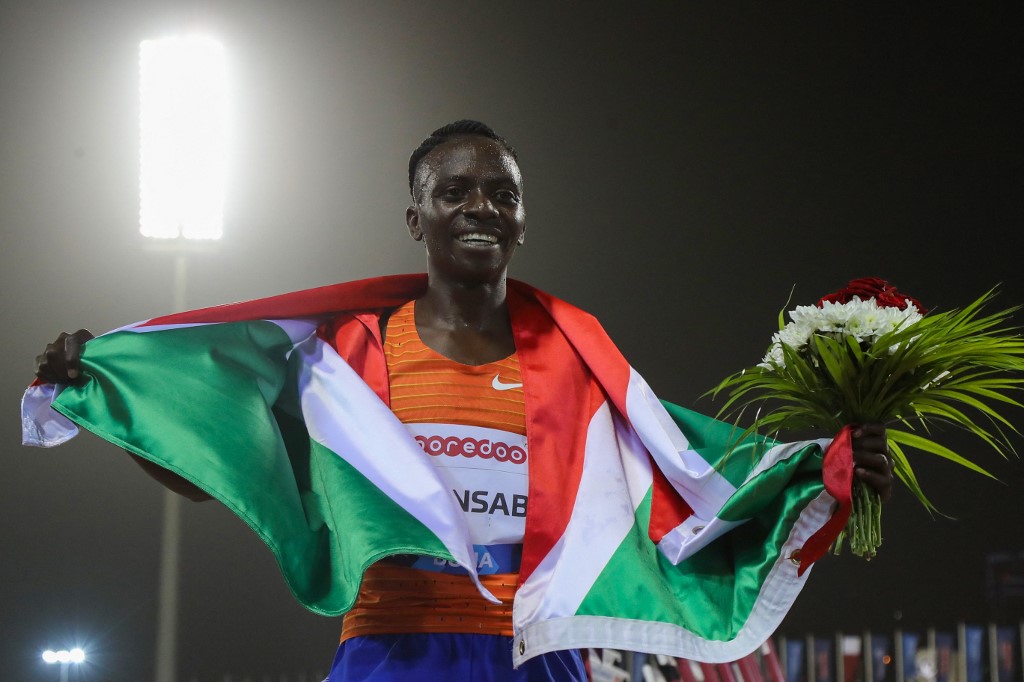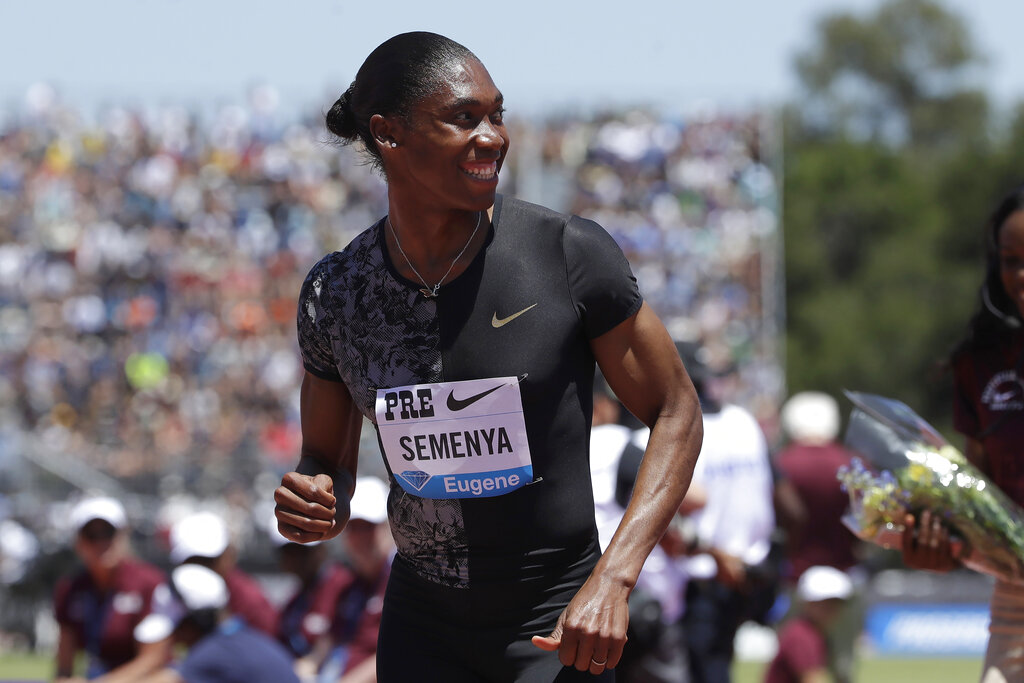Athletics world governing body bans transgender women athletes

FILE–Burundi’s Francine Niyonsaba celebrates winning the women’s 3000m event during the IAAF Diamond League athletics Doha meeting at the Khalifa International stadium in the Qatar capital on May 13, 2022. (Photo by KARIM JAAFAR / AFP)
MANCHESTER, England—World Athletics has banned transgender women from competing in elite female competitions and tightened testosterone restrictions for other athletes, the governing body said on Thursday.
World Athletics president Sebastian Coe said that the decision to exclude transgender women who had gone through male puberty was based “on the overarching need to protect the female category”.
Article continues after this advertisementThe tighter measures around one of the most contentious and divisive issues in sport follow a similar move by World Aquatics in 2022.
World Athletics’ council also voted to cut the maximum amount of plasma testosterone for athletes with Differences in Sex Development (DSD) in half, to 2.5 nanomoles per liter from five.
DSD athletes will also have to reduce their testosterone levels below the new limit for a minimum of 24 months across all events to compete, double the previous time.
Article continues after this advertisementThe governing body had previously floated the option of transgender athletes being allowed to compete in the female category if they, too, maintained testosterone levels below 2.5 nanomoles per liter for 24 months.
Yet it said on Thursday that it became apparent there was little support within the sport for that proposal.
“We’re not saying no forever,” Coe told a news conference.
Coe announced the formation of a working group, which will be chaired by a transgender athlete, to further study the issue of trans inclusion.
“The working group will look at any prevailing or changing or furthering of our understanding in that space,” Coe said. “We don’t know enough, we now need to know more, and that is the journey that we’re on. But we weren’t prepared to risk the female category on that basis.”

FILE – In this June 30, 2019 file photo, South Africa’s Caster Semenya smiles after winning the women’s 800-meter race during the Prefontaine Classic, an IAAF Diamond League athletics meeting, in Stanford, Calif. (AP Photo/Jeff Chiu, File)
The tighter testosterone rules will impact DSD athletes such as two-time Olympic 800 meter champion Caster Semenya, Christine Mboma, the 2020 Olympic silver medalist in the 200m, and Francine Niyonsaba, who finished runner-up to Semenya in the 800 at the 2016 Olympics.
WA regulations around DSD previously required women competing in events between 400 meters and a mile to maintain testosterone levels below five nanomoles per liter.
The governing body on Thursday introduced interim provisions for athletes already competing outside the restricted events, who will be required to suppress their testosterone level to 2.5 nanomoles per liter for six months.
This would prevent several women from competing at the World Athletics Championships in August.
Since being barred from the 800m, Burundi’s Niyonsaba turned her attention to the 5,000, winning the Diamond League Final in 2021.
She was disqualified in her heat of the 5,000m at the Tokyo Olympics for a lane violation, while Semenya failed to qualify for the Games.
Namibia’s Mboma, prevented from running the 400m, switched to the 200m, winning silver in Tokyo.
DSD athletes have male testes but do not produce enough of the hormone Dihydrotestosterone (DHT) that is necessary for the formation of male external genitalia.
Coe said the decisions were made in consultation with numerous stakeholders including 40 member federations, coaches, athletes, plus a range of community groups including trans groups, United Nations experts and the International Olympic Committee.
Swimming’s world governing body World Aquatics voted last June to bar transgender women from elite competition if they had experienced any part of male puberty. A scientific panel had found that even after reducing their testosterone levels through medication, transgender women still had a significant advantage.
That vote passed with 71% of the national federations in favor.